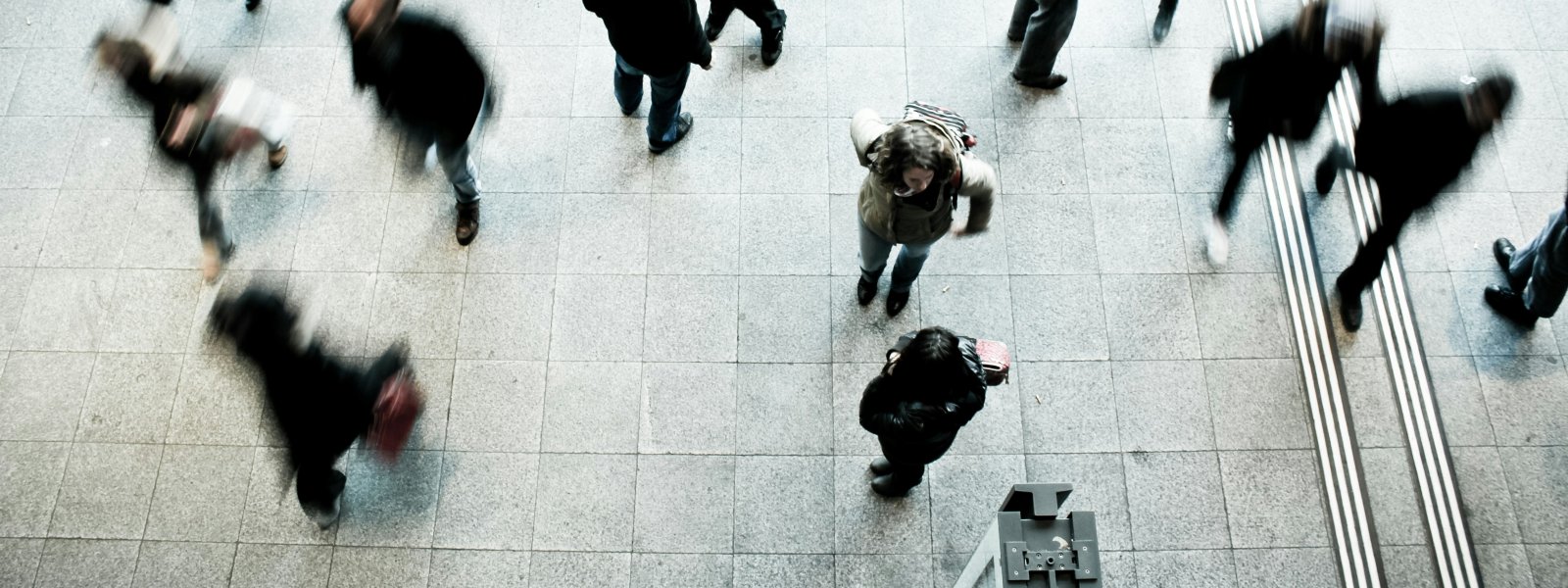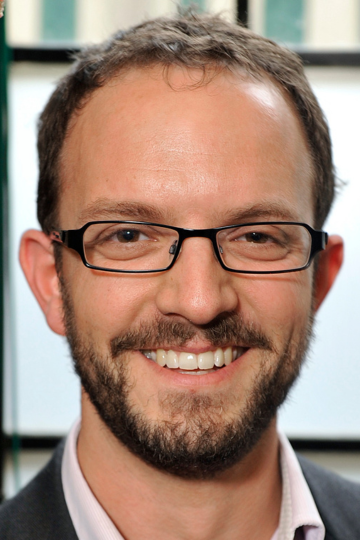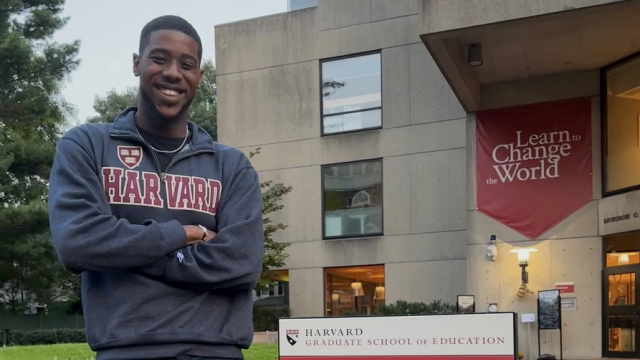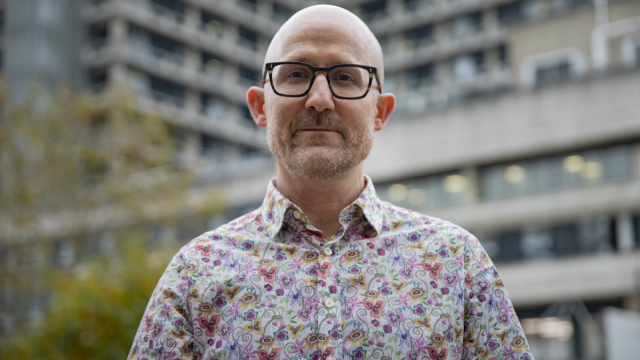Sidney alumnus Dr Benjamin Ellis MBE (Neural and Developmental Biology, 1996) is a busy man.
When we talk, he is heading to Windsor Castle, where he volunteers on the Senior Faith in Leadership Programme (SFLP) for Jewish, Muslim and Christian leaders: ‘It’s not an "interfaith programme". We focus on developing leadership, and facilitating meaningful encounters between people who serve faith communities in lay and clerical roles.’
The SFLP is a further string to Benjamin’s already well-strung bow. He was a founding Trustee of KeshetUK, which works for LGBT+ inclusion in the Jewish community, and chaired the charity until 2022. He is a consultant rheumatologist and currently Clinical Director for Outpatient Transformation at Imperial College Healthcare NHS Trust. An expert in chronic pain, he has contributed to national guidelines, is Senior Clinical Policy Adviser to the UK’s largest arthritis charity, Versus Arthritis, chairs a special interest group in Musculoskeletal Health at the Faculty of Public Health, and is a leader in developing innovative approaches to supporting people with persistent pain.
In January, he was appointed MBE for services to inclusion, healthcare and the Jewish community.
So, where to start? Tell me about KeshetUK.
‘”Keshet” is the Hebrew word for “rainbow”. Not very original... there are a lot of Jewish LGBT+ organisations using that word. Our linguistic creativity was running dry, so we stuck a ‘UK’ on the end and got on with it.
Why did you found a charity? What were you responding to?
‘In 2010, a group of us wanted to create a common voice for Jewish LGBT+ people in the UK. Then in 2012 a large Jewish day school was alleged to have taught about “reparative therapies” – sometimes called “gay conversion therapies” – in an uncritical way. It wasn’t necessarily malicious, but clearly Jewish schools didn’t have the knowledge, skills and confidence to talk about LGBT+ issues in a healthy way.
‘The upset and anger galvanized us into transforming KeshetUK into a training organisation within the Jewish community that could work with schools, synagogues, rabbis, to help them do this better.
‘A lot of our work for the first few years was secret. We didn’t always love that – it felt like being put back in the closet – but it was necessary, and absolutely worth it. We met educators, rabbis and leaders – always with the guarantee that no-one would know a meeting happened unless all participants wanted it.
'We would go into an organisation and say, right, what do you need help with? What issues are coming up? How can KeshetUK help you become the place you want to be?’
You’ve now been recognised for this work: how did it became public?
‘In late 2014, KeshetUK reached out to Chief Rabbi Mirvis, inviting him to attend a KeshetUK Chanukah party in Parliament hosted by my local MP. He couldn’t come, but asked to meet us and when we met a year later there was real warmth and care. At the end we said: ‘Can we ask one thing? Will you tweet that you met us?’ He did. That sent a signal to traditional communities: meeting with KeshetUK was acceptable, we were not off limits.
’We had the idea for a document for schools in 2016, partly inspired by the Church of England document ‘Valuing All God's Children’. We started working on a guide for schools, initially very quietly – as was our style. Some very brave rabbis and educators met us behind closed doors, and we ran focus groups with young LGBT+ adults who’d recently left Jewish schools. Chief Rabbi Mirvis heard about this guide, and wanted to work with us on it and ultimately to publish it in his name. This was an offer we couldn’t refuse.
’We worked very closely with him over several months, in genuine co-production. In 2018, just before Rosh Hashanah, it was published. It was an immediate game changer. The Chief Rabbi had said Orthodox Jewish schools should ensure the welfare of LGBT+ pupils. He condemned homophobia, biphobia and transphobia. KeshetUK was named in the document. After that, schools could proudly say they were working with us. The ripple was felt internationally, this was a global first – KeshetUK’s Executive Director and I did a US speaking tour.
‘The biggest lesson of this work is that it’s the relationships that count, and it’s the same in healthcare. You can have the best ideas in the world, but it's your connections with people that get things done.‘
Your MBE is partly for your work in inclusion. How was it arriving at Sidney, as a young gay man from an Orthodox Jewish background?
‘I was at Sidney from ’96 to ’99. What can I say? I’d grown up a strictly Orthodox Jew in Leeds, and had studied for two years in an Orthodox Jewish seminary near Jerusalem. It was a culture shock!
‘It wasn’t easy being an Orthodox Jew, who strictly observed halakha, in College. I ate only kosher food. In three years in Sidney, I went to formal hall twice. The first time (matriculation) I ate a depressing cellophane-wrapped airline meal, and sat next to some academic who delighted in telling me Ashkenazi Jews weren’t real Jews anyway.
‘That was so much fun I didn’t go back to hall until graduation. I prepared a plate of cold food in advance, covered it in cling film, and asked the kitchen to bring that out for me.
‘Other things required political gymnastics – preparing me for a career of negotiation and persuasion. Orthodox Shabbat means not working from sundown on Friday until Saturday. My first year I had tutorials on Friday evening – I couldn’t go. My Director of Studies – a wonderful man I remember fondly – said I had to formally ask the rabbi for a ‘dispensation’. It felt demeaning that I had to go through the charade of asking a rabbi, and that my stating my own religious needs wasn’t enough. But I dutifully asked the rabbi, who of course said ‘no’, and only then were other arrangements made.
‘In some areas College definitely made an effort, and I was grateful. I was allowed a fridge and microwave in my room, as I had to cook my own kosher meals. When electronic keypads arrived (which aren’t allowed by Orthodox Shabbat rules), a way was found for to loan me a physical key.
‘In my final year, I scored well in the ballot. There was one room that had its own kitchen (in Cloister Court) which was a bit above where I was in the ballot, but I was bumped up, which was really helpful. Still, one or two students said unkind things about me having that better room.
‘As for being a young gay man... the closet door was firmly shut at that point. My plan was to keep going, find a way to be straight enough to marry a woman. Someone in our year was an out gay man with a boyfriend. This seemed astonishing but also wonderful to me; remember this was years before civil partnerships. There was a LesBiGay society at Sidney, but I was terrified to go. I thought if I outed myself, my life would be ruined in my Orthodox Jewish community.
‘I did have a good time at Sidney, and made lifelong friends. College was as flexible as it knew how to be. But there are things I missed out on that I wish I hadn’t, and with a bit more creativity and kindness I would have been able to do far more. It’s hard to advocate for yourself at twenty, especially in a College with 400-year-old traditions.
‘I suspect that 25 years on, people at Sidney are thinking much more deeply about ensuring students from different backgrounds feel really included. It’s kindness and care for the individual that really matters. Perfect policies are good, but the biggest impact, comes from the so-called ‘smaller’ things. Asking people how they are, what they need. Listening carefully. Then being brave enough to act.
With both Keshet UK and Versus Arthritis, you've worked more broadly than medicine. Is there something that connects those roles? Do you feel a need to go beyond ‘just’ being a doctor?
‘Like ‘Being an NHS doctor’ just isn’t quite enough? (laughs)
‘When I shared the news of my MBE somebody said that what connects inclusion and arthritis is wanting to take away pain. There's something interesting there.
‘I'm drawn to things that are invisible; I want to make them visible. Sexuality, gender, dreadful physical pain – these are all things you can't tell by looking. We make things visible (or audible) by giving people voice.
‘And I grew up in a very tight-knit Jewish community in Leeds – I really believe in community as a force for improving the world. There's a tendency in healthcare, in society generally, to think the fix will be from technology, or legislation, or reallocating resources. These things are important, but very often community gets overlooked even though it can be very powerful. If as doctors who support people with chronic pain we ask, ‘What can I do with the power and privilege that comes with this role?’, the answer is: we can bring people together. People need connection, which is the starting point for empathy, emotional and material support.’
Someone with chronic pain might feel their needs are not being met by the system. I wonder if there’s a parallel with organised religion – as a person of faith you can see many positives in a religious community but also that it doesn’t always recognise the needs of the individual. Does that make sense?
‘It does.
‘I should say that I am a person of faith in quite a typical ‘Jewish’ way. I have faith in Jewish traditions, our community, our way of thinking about ethical and human problems. Whether I believe in the metaphysical – well, that’s another interview!
’So back to the question... in recent times we’ve created powerful bureaucracies and systems to solve our problems. There is a place for that thinking, but we must remember the humanity at our core.
‘Whether we’re talking about relationships between Jewish, Muslim and Christian people; or whether it's people with chronic pain; or LGBT+ people who don’t fit in someone’s neat theological box – you can spend time and energy trying to fix the systems, but there can be huge resistance, and the changes don’t always create the outcomes we’d expect.
’The most powerful work, the greatest change I’ve seen has been by asking people to step away from these ‘bigger’ systemic conversations and ask, ‘How does this affect individual lives?’. For the teacher, rabbi or clinician to say, “Tell me about your life, tell me what you’d like to be able to do, let’s focus on that.”
‘By focusing on people and relationships – those human-sized things – I’ve found we stand a better chance of tackling the big stuff, in the long run. Now as we’re facing ‘culture wars’, income inequality, unprecedented environmental threats, and terrible conflicts across the globe, we need to focus even more on our relationships and connections, and create community that way. That’s where many sustainable solutions lie.’
You can learn more about the College's work on Equality, Diversity and Inclusion, and read our EDI Annual Report on our dedicated webpage.
Banner image: Timon Studler, via Unsplash.com.
If you have something that would make a good news or feature item, please email news@sid.cam.ac.uk



